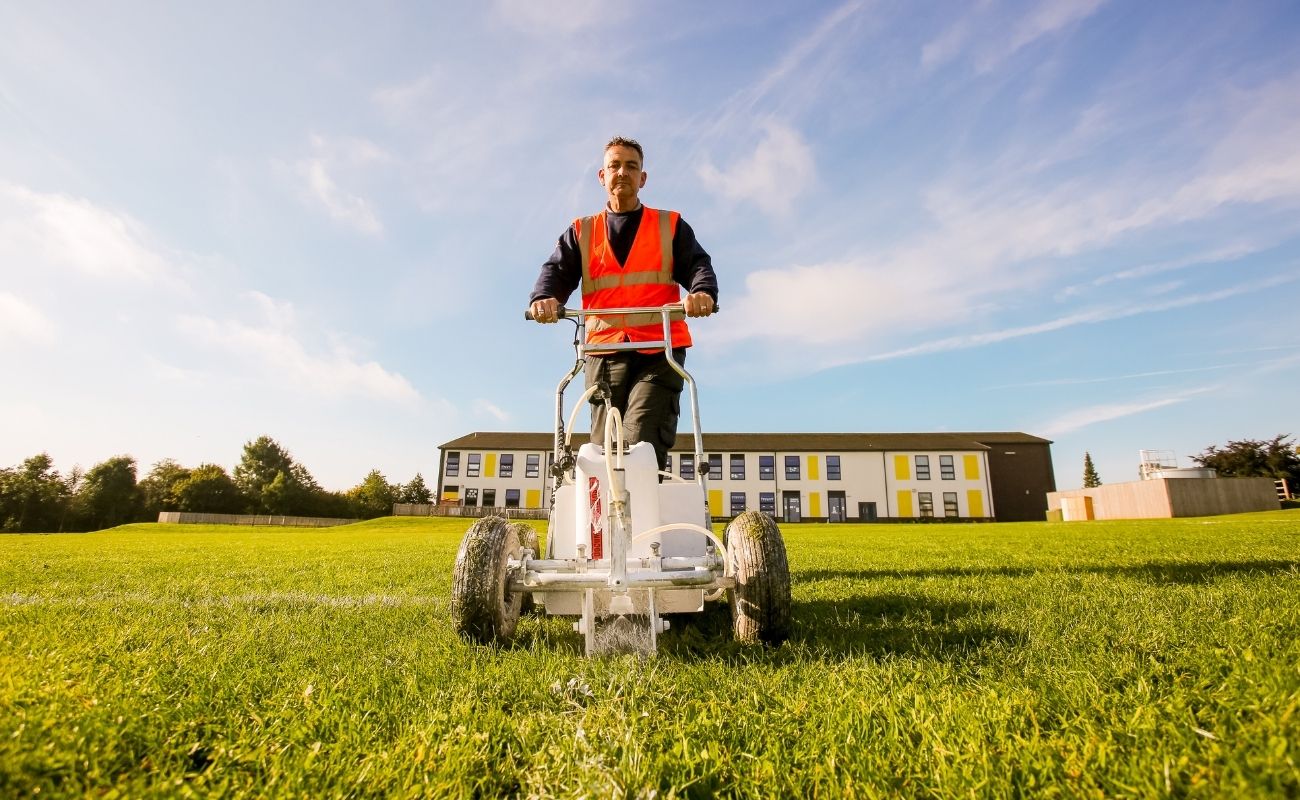Home | Company News |
The UK can hardly be depended on for its good weather, but when the sun (eventually) does start to shine, our grounds will require an extra bit of TLC.
We need to make sure that we’re doing the right things to protect our grounds from heat damage. Even though our heatwaves don’t tend to last for long, the damage to your lawn, shrubs and plants can be irreversible!
So, in this blog post, we’ve created our expert guide to caring for your great outdoors during extremely hot weather. With these quick and easy tips, you’ll be able to keep your grounds in top condition throughout the summer.
1. Try to stick to native plant species
Where possible, we recommend that you plant native species of trees, shrubs, and flowers. This is because these plants are able to adapt to this climate (and any changes in it) far more successfully than imported varieties.
The other benefit of doing this is that native plants have developed a much stronger resistance to local diseases.
As a result, these plants will be more likely to last in your grounds for the long-term.
2. Use light-coloured mulch
Mulch is available in both light and dark colours.
When the weather is hot and the sunlight is intense, use light-coloured mulch in your grounds.
This will protect your soil from the light, because the lighter colour will reflect far more light than darker colours. Plus, this will also help you to lock in the soil’s moisture.
3. Water your plants from a low height
When using a watering can to water your plants, do it from a low height. Also, the ideal time to do this would be the early morning.
The combination of this will help you to minimise the amount of water that you lose through evaporation (so, your plants will get more water).
Therefore we also suggest that you avoid using a sprinkler to water your grounds in hot weather, because you will lose loads of water to evaporation. So your plants won’t be getting anywhere near as much water as you think.
What’s more, by watering lower down, less water will splash onto the plant’s leaves. If there are too many water droplets on the plant leaves, then the leaves will be scolded by the high temperatures.
4. Use shade cloths
During the heatwave, you can protect your fragile plants by using a shade cloth.
These are available in many different shapes and sizes, and they also come in a number of different sun protection factors. Your most tender plants will need at least a 50% level of protection.
5. Avoid new planting
Try and avoid any new planting or transplanting during heatwave conditions. It is not conducive to healthy growth, and it’s highly likely these actions would cause the plant to dry out.
6. Avoid fertilisers
During a heatwave, fertilisers are not your friend.
When you add fertiliser to your grass lawn or plants in these temperatures, they will just evaporate before the plants can take them in.
Plus, plants struggle to take nutrients on board in these conditions anyway. So (no matter how good your intentions are), the use of a fertiliser would be a complete waste of your time and money.
7. Set a high mowing height
When mowing your grassed areas, set your mowing height to ‘high’.
The same goes for any areas you plan to strim. Also, reduce your cutting schedule to just a few times a month, rather than a few times a week.
We recommend that you do this because taller grass is more effectively able to retain moisture, so it will provide better protection to the soil below.
The added bonus of leaving your grass longer is that it helps insects and wildlife to thrive, especially bees, who are busily going about pollinating.
8. Protect your wildlife
Protect any wildlife that is visiting your garden – they find the hot weather as oppressing as we do!
You can do this by leaving out water in a birdbath. By providing water to visiting wildlife, you can help to keep the micro-ecosystem of your greenspace balanced. This will prevent your plants from being ravaged by pests, who would otherwise roam un-checked by their predators.
So there you have it – our 8 top actionable tips for protecting your outdoor space during a heatwave.
By following these guidelines, you can keep your grounds safe from damage caused by the intense sun and heat.
If you would like some extra help keeping your grounds in optimum condition during this period of extreme weather, don’t hesitate to get in touch. Our top team of grounds maintenance experts are on hand to offer their advice, and help you take care of your grounds.



